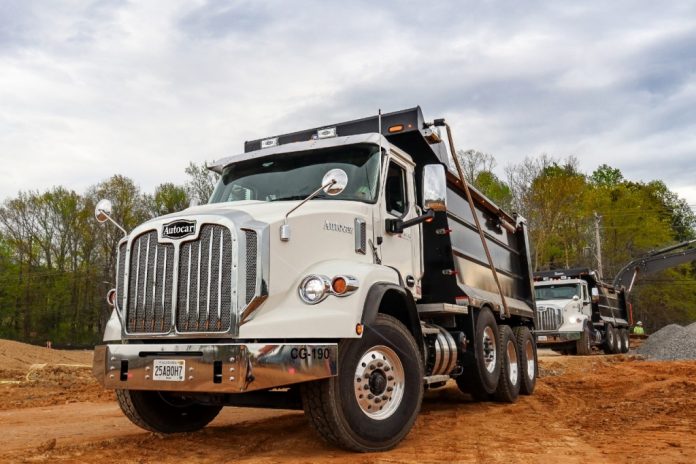General Motors and Autocar Industries have reached a joint development agreement to produce a line of zero-tailpipe emission commercial vehicles that run on GM’s Hydrotec power cubes.
By 2026, Autocar’s Birmingham, Alabama, facility will produce the first zero-emission vehicles. These vehicles, including terminal tractors, dump trucks, road maintenance vehicles, and cement mixers, typically rely on diesel engines as their power source.
Hydrotec power cubes are scalable, lightweight, and easy to package. They can power generators, freight trucking, aircraft, and locomotives, among other industries, and electrify vehicles and applications. Autocar will manufacture Hydrotec-equipped vehicles to order and sell directly to consumers. Priority production will be given to the construction of cement mixers, roll-off and dump trucks, and terminal tractors since they have similar architecture.
In addition to thermal and power management systems and proprietary controls to maximize cold start capabilities and extend the life of fuel cells and batteries, each power cube has over 300 hydrogen fuel cells built into it. The 77-kilowatt Hydrotec power cube operates significantly more quietly than a traditional diesel propulsion system.
Autocar, a market leader in specialized commercial trucks, considers this endeavor a significant step in providing customers with robust, zero-tailpipe emissions solutions. Moreover, fuel cell technology provides an extra energy mobility choice to help Autocar’s vocational customers transition to EPA requirements.
Meanwhile, hydrogen fuel cells are a crucial element of GM’s electrification strategy, which goes beyond battery-powered passenger cars. Fuel cells use an electrochemical process to mix hydrogen and oxygen to produce energy. The fuel cell makes it possible to turn hydrogen energy into electrical power for a vehicle.
Due to their lightweight design, heavy-duty applications can benefit from fuel cells’ colossal payload capacity, exceptional range, silent operation, and quick refilling. Compared to diesel vehicles, fuel cell-powered vehicles have the added benefit of zero exhaust emissions despite regulations vastly changing in many countries.





